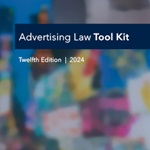Listen to Episode 12 of Venable's Ad Law Tool Kit Show – "Telemarketing and Texting"
 Telephone and text marketing is ubiquitous these days. But those tools also pose private litigation risks and regulatory hurdles that marketers should be aware of at the outset of any campaign. They involve legal and regulatory complexities, including do-not-call laws enforced by the FTC, FCC, and states. Host Shahin Rothermel and Venable partner Ari Rothman talk about how litigation often concerns consent for autodialed calls and texts. State laws may broaden rules, causing uncertainty regarding reassigned numbers.
Telephone and text marketing is ubiquitous these days. But those tools also pose private litigation risks and regulatory hurdles that marketers should be aware of at the outset of any campaign. They involve legal and regulatory complexities, including do-not-call laws enforced by the FTC, FCC, and states. Host Shahin Rothermel and Venable partner Ari Rothman talk about how litigation often concerns consent for autodialed calls and texts. State laws may broaden rules, causing uncertainty regarding reassigned numbers.
State Attorney General Inquiries: An Excerpt from the Advertising Law Tool Kit
 State attorneys general (AGs) are the chief legal officers of their states or territories and can bring actions to protect the "public interest" in almost any area of law. They represent the state government and the general public and have broad jurisdiction over everything from public corruption to consumer protection.
State attorneys general (AGs) are the chief legal officers of their states or territories and can bring actions to protect the "public interest" in almost any area of law. They represent the state government and the general public and have broad jurisdiction over everything from public corruption to consumer protection.
Not So Fast: FTC Letter Rebukes Direct Selling Self-Regulatory Council Guidance
Historically, the Federal Trade Commission (FTC) has touted self-regulation as integral to consumer protection. This has included encouraging industries to work with the Better Business Bureau (BBB) in developing a self-regulatory body that can promote industry-wide policies and heightened compliance. However, late last month, the FTC criticized guidance promulgated by a self-regulatory body calling into question how much the current FTC values industry self-regulation.
Unraveling a Tangled Net of Claims: Jury Split on a Jellyfish-Derived Supplement Product
In February 2024, a New York federal jury returned a split verdict in the New York attorney general's lengthy battle against Quincy Bioscience, finding that certain of Quincy's efficacy and establishment claims for a dietary supplement called Prevagen were materially misleading. Quincy advertises that Prevagen improves memory through an active ingredient derived from jellyfish.